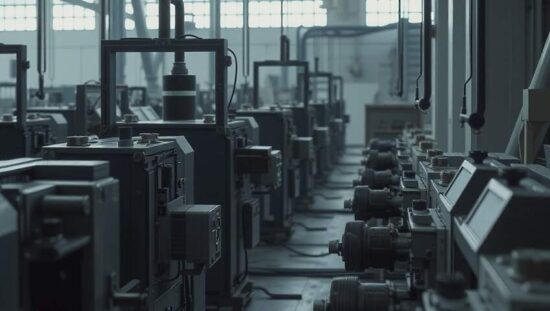The European industrial landscape is facing a deepening crisis as a Chinese export ban on semiconductors manufactured by Nexperia, a Dutch chipmaker, threatens to disrupt critical supply chains across multiple sectors. A new analysis by Prewave, a Vienna-based risk assessment firm utilizing artificial intelligence, reveals the staggering extent of European industry’s reliance on Nexperia’s Chinese-produced chips.
The analysis highlights a pervasive dependency: leading European aerospace and defense companies, as well as 95% of the machine building sector and 86% of the medical technology industries, rely on Nexperia chips. An alarming 49% of European automotive manufacturers also procure semiconductors from Nexperia’s Chinese facilities. Across seven analyzed industries, 86% of leading European companies source Nexperia components from China.
The abrupt export restriction, triggered by the Dutch government’s recent intervention to prevent the transfer of vital technology to Nexperia’s Chinese parent company, Wingtech, has rapidly depleted existing inventories. This situation is placing European manufacturers between the escalating trade tensions between China and the United States, leaving them vulnerable to broader geopolitical instability.
Olaf Lies, Minister-President of Lower Saxony, voiced grave concerns about the potential impact on the automotive industry, characterizing the situation as beyond mere collateral damage. He urged swift action, emphasizing the urgent need for a solution to avoid production halts. Lies proposed cultivating European capacity for key components like semiconductors, batteries and “green materials” alongside forging partnerships with friendly industrial nations to mitigate critical dependencies.
Sven Schulze, Economics Minister of Saxony-Anhalt, echoed this call, highlighting the fragility of the current system and demanding renewed focus on building a more independent European chip industry. He stated that the EU needs to elevate the issue to a top priority.
Even within the affected industries, the gravity of the situation is clear. BMW’s chief economist, Kai Fournell, acknowledged the risk of production stoppages, though expressing cautious optimism regarding mitigation efforts. While not anticipating a crisis on par with the COVID-19 pandemic, Fournell stressed the ongoing monitoring and coordination with suppliers and policymakers to address the challenge.
Beyond automotive, the German Machine and Plant Engineering Association (VDMA) expressed alarm, noting that the chip shortage, reminiscent of previous crises, significantly impacts sectors relying on combustion engines, from power generators to agricultural machinery. While the overall demand for chips within the machine building sector is comparatively lower, potential impacts are widespread.
The crisis underscores a fundamental vulnerability in Europe’s industrial strategy – a near-total reliance on foreign, specifically Chinese, supply chains for critical components. The unfolding situation is fueling calls for a radical rethinking of industrial policy, prioritizing strategic autonomy and fostering a resilient, independent European chip industry capable of weathering future geopolitical storms.





